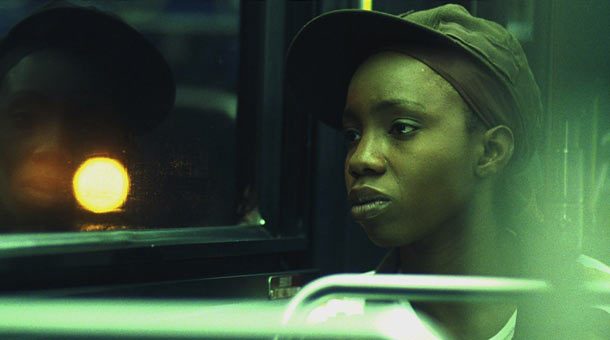
It benefited the most from the strong performances but the important message the film wanted to make was heard loud and clear.

It benefited the most from the strong performances but the important message the film wanted to make was heard loud and clear.
Better than your average coming of age story is Pariah, about a teenager who finds it difficult to be herself when her parents will not accept that she is gay. The title of the film means one that is despised or rejected. So it was fitting when the film opens with a quote from Audre Lorde, “Wherever the bird with no feet flew, she found trees with no limbs.”
Alike (Adepero Oduye) is a smart 17 year old student who is passionate about poetry from Brooklyn. She happens to be far more interested in girls than boys. She frequents nightclubs with her gay friend Laura (Pernell Walker) to attempt to pick up girls. Laura is the only one in Alike’s life that encourages her to explore her lesbian identity, unlike her parents who will not accept that fact.
Her mother (Kim Wayans) is the most worried about her “tomboy” looks. Although Alike never directly tells her mother that she is gay, her mom can read between the lines. She will not stop criticizing Alike’s wardrobe, often making her change into more women like outfits. She does not listen with Alike says the girly clothes are, “not me”.
She does not like Alike hanging around her friend Laura so she encourages her to befriend a daughter of one her friends who is the same age named Bina (Aasha Davis). Alike sees right through her moms obvious ploy to get her to hang out with straight girls. In the beginning, this forced friendship was doomed from the start.
However, Alike and Bina eventually do become friends. But little does the mother know that her attempt at keeping her daughter from the “wrong crowd” only made things more complicated when Alike and Bina become more than just friends.

My favorite scene in Pariah comes a little more than half way in when Alike and her father (Charles Parnell) have a conversation together. Alike walks in on him having a seemingly private conversation over the phone that ends abruptly when she makes her presence known. She looks for advice on what to do when a friend likes you more than a friend. The two each are tip-toeing on egg shells around her being gay. So in order to appease himself and his wife, he just assumes she is talking about a boy and Alike does not correct him. She tries to confront him on who he was talking to on the phone, knowing it was not her mother but that also swept under the rug by him and never answered. The scene was very genuine. It showed that you cannot fix a problem if it is not first addressed, you can only pretend.
Alike must constantly tell her parents that there is nothing wrong with her but they refused to listen. Because they refuse to accept that their daughter is a lesbian. Instead of trying to solve problems they choose to ignore them. That means in the end nothing can be resolved.
One thing I think most people can agree on after watching the film how well the performances were from the cast. Especially good were the young cast of Adepero Oduye, Pernell Walker, and Aasha Davis. Their characters were unconventional but they each played them made it seem natural.
Pariah benefited the most from the strong performances but the important message the film wanted to make was heard loud and clear. The process of growing up is hard in of itself but when your parents do not support who you are it is made exponentially more difficult. If there is one thing you should take from the film it is that people should accept people for who they are, especially when it’s your own child.